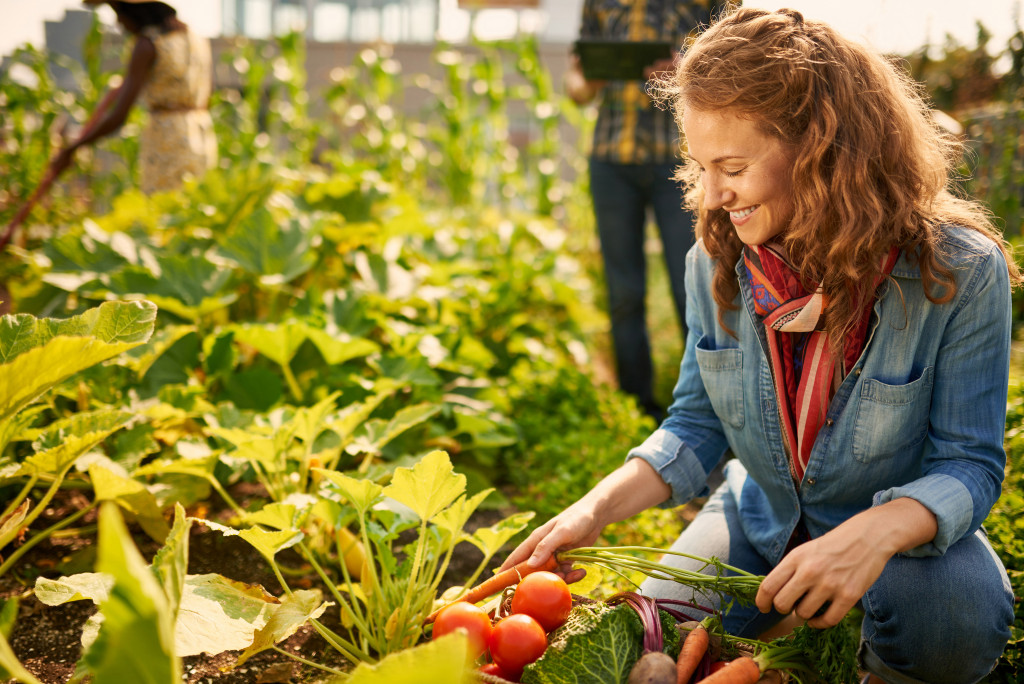Have you ever considered starting an urban farming initiative in your community but didn’t know where to start? Or maybe you’re wondering what exactly is involved in urban farming? Here’s a quick guide to everything you need to know about creating an urban farming initiative in your community.
What is Urban Farming?
Urban farming is a form of agriculture in or around cities. It’s usually associated with growing fruits and vegetables on little pieces of land, but it may also include livestock and beekeeping. Urban farming can be a fantastic method to get involved in your neighborhood, learn more about your local food system, and promote environmentally friendly living habits.
Of course, starting any farming initiative can be daunting, especially if you’ve never done it before. However, if you’re interested in starting an urban farm in your community but aren’t sure where to begin, this guide is for you.
Why Start an Urban Farm?
You might want to start an urban farm initiative for many reasons. Maybe you’re passionate about promoting sustainable living practices, or perhaps you want to create a more vibrant and connected community. After all, most urban areas need green space, and what better way to provide it than by starting an urban farm?
Whatever your reasons, starting an urban farm can be a great way to make a difference in your city or town. Besides, there are many benefits to urban farming, including:
- Improved mental and physical health for those who participate
- A stronger sense of community among those who live near the farm
- A connection to nature and the outdoors
- Increased access to fresh, healthy food
- The opportunity to learn new skills
- An outlet for creativity
Starting an urban farm may be the right decision if you’re interested in any of these benefits. But no matter what your motivation is, if you’re interested in starting an urban farm, there are a few things you should keep in mind.
What You’ll Need to Start an Urban Farm
Now that you know a little more about urban farming and why you might want to start the initiative in your community, it’s time to talk about what you’ll need to get started. Of course, every urban farm is different, and what you’ll need will depend on the type of farm you want to start, the size of your operation, and your budget. However, there are a few basics that every urban farm will need, including:
Seeds or seedlings
You’ll need seeds or seedlings to get your urban farm started. You can either grow your own from scratch or buy them from a local nursery or garden center. This will be one of your highest startup costs, so be sure to factor it into your budget because it can be expensive.
Fertile soil
For your plants to grow, you’ll need access to fertile soil. If you’re starting a small farm, you may be able to get by with using potting soil and containers. However, if you’re planning on growing a more extensive operation, you’ll need to find or create fertile soil. This may involve renting or purchasing land or working with your local government to find vacant lots you can use for farming.
If you can get a lot of people to join your urban farm initiative, you might be able to raise enough funds to invest in a greenhouse horticulture solution, which would give you year-round access to grow fresh, local produce. Who knows? It might even be a source of additional income for the members of your community.
Water
Of course, plants need water to grow, so you’ll need a reliable source of water for your farm. This could either be a faucet, hose, or irrigation system. If you live in an area with frequent droughts, you may consider collecting rainwater for your plants.
Pest control
Depending on the farm you want to start, you may also need to consider pest control. If you’re raising livestock, you’ll need to ensure they have a safe place to live and are protected from predators. If you’re growing fruits and vegetables, you’ll need to check for pests and diseases that could ruin your crops.
Tools and equipment
Finally, you’ll need the right equipment to run your urban farm. This will vary depending on the type of farm you’re starting, but some basic equipment you might need includes:
- Shovels
- Rakes
- Hoes
- Pruning shears
- Watering cans
- Wheelbarrows
Of course, this is just a tiny sample of what you might need to start your urban farm. As you develop your farm, you’ll likely need to purchase additional tools and equipment, especially if your group of volunteer farmers grows too.
The bottom line is that starting an urban farm takes a lot of work, but the best part is that you don’t have to do it alone. If you can encourage other community members to get involved, you’ll be well on your way to starting a thriving urban farm. And who knows? You might inspire others to make more sustainable choices as well.



